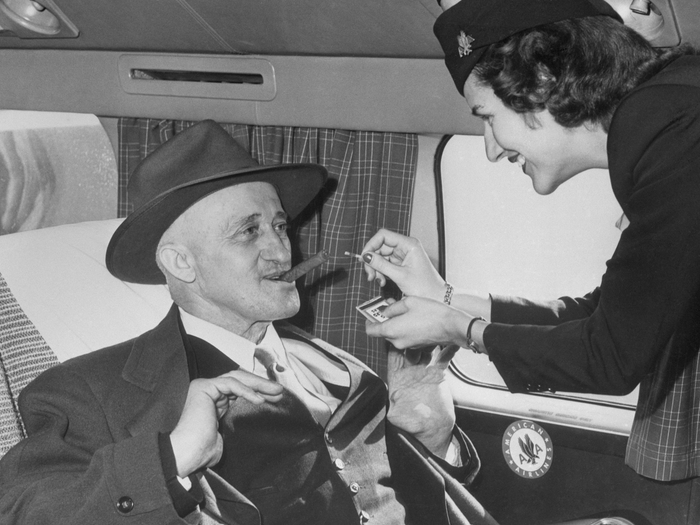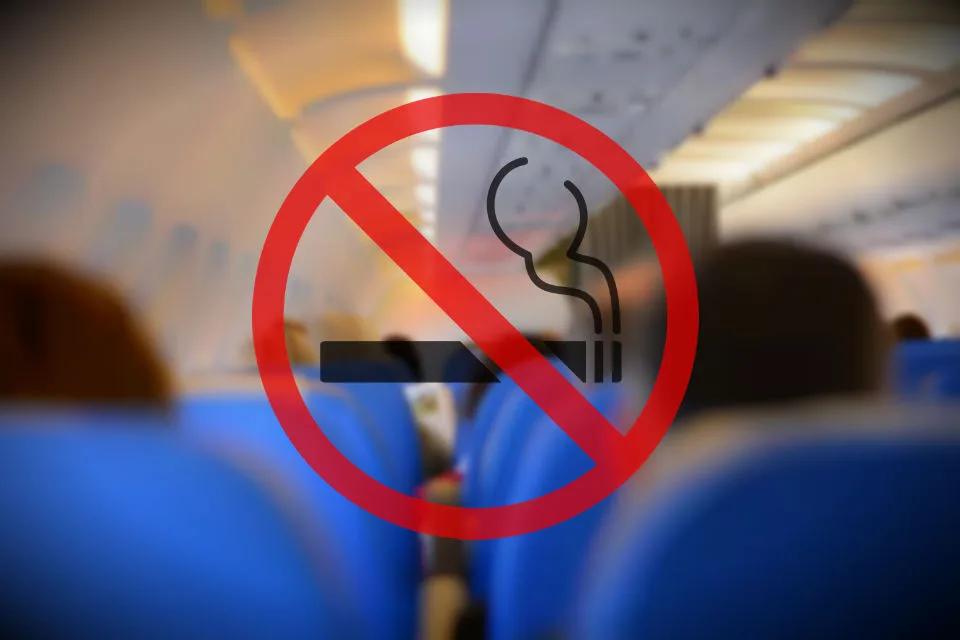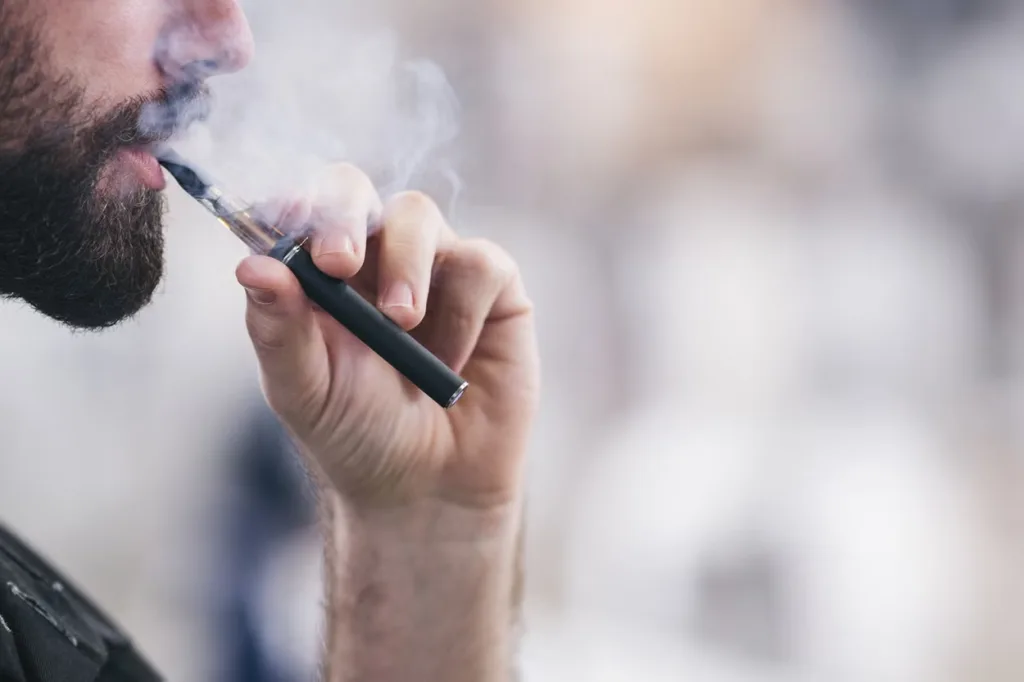More than two decades after the United States banned in-flight smoking, an astounding new trend has come up, with flight attendants admitting to vaping mid-flight. While flight smoking rules strictly prohibit all forms of smoking, including the use of e-cigarettes, recent reports suggest that some airline crew members secretly disregard the rules.
Originally introduced to protect passengers and crew from second-hand smoke, the airplane smoking ban was extended to include e-cigarettes in 2011. However, with even the explicit rule not appearing to deter, vaping at 35,000 feet seems to be a guilty pleasure not only among a handful of its rebellious passengers, but among those enforcing the rules.

Reddit Confessions Expose Crew Culture
The issue came to light after one of the flight attendants working for one of the major U.S. carriers shared their experience on Reddit. In what has become a viral post, the crew member explained:
“I’ve seen so many FAs vape on flights. I’m not one to snitch, and as long as you’re not obnoxious, I mind my own business.”
The thread quickly filled with other current and former crew members echoing the same sentiment. Some admitted to vaping in the airplane lavatory, while others said they had seen colleagues using vape devices openly in the galley or cockpit.
“I’ve seen FAs vape in the back and pilots vape up front. It’s not an everyday thing, but it definitely happens,” claimed one commenter.
How Do Vapes Bypass Smoke Detectors?
Maybe the worst part of this activity is how many times it occurs without being caught. All modern aircraft are equipped with smoke detectors, especially in the lavatories, but vapes typically do not trigger them.
Manufacturers claim that these smoke detectors are specifically designed to identify aerosol vapor, but anecdotal evidence suggests that the detection rates are inconsistent. Many flight attendants confessed in their admissions to vaping discreetly in the lavatory without ever triggering alarms.
“As long as you don’t set off the smoke detector and no one knows, then what’s the issue?,” admitted one FA.
This relaxed attitude towards flight smoking policies is concerning, especially as vaping devices contain lithium-ion batteries, which pose a known fire hazard when damaged.

A Growing Problem Above the Clouds
Korean Air published a study in 2019 that found 34% of passengers who travelled with a vape device on an airplane used it while airborne. That percentage may be higher today. It’s not just the quiet vapes that are a problem, flight attendants and even pilots are reportedly vaping too.
Such actions are a straightforward violation of flight smoking laws, which are governed by the Federal Aviation Administration (FAA) in the United States. Violators can be fined up to $25,000 and even face bans from airlines.
Yet the evidence suggests that violating flight smoking rules is more common than most would think, and not often enforced, especially by airline crew.
Unions and Regulators Call for Stricter Controls
Flight Smoking issue hasn’t gone unnoticed for regulators and trade unions either. Association of Flight Attendants (AFA-CWA) president Sara Nelson has been a long-time campaigner for stricter controls on vapes in the air. She has already called for an outright ban – not just vaping on board, but even bringing vape kits on board as hand luggage.
The problem isn’t just airplane smoking enforcement, but it’s also fire risk on board. Lithium-ion battery malfunctions have led to smoke incidents in the air, prompting emergency landings and concern among aviation safety officials.
The FAA already bans bringing e-cigarettes in checked bags due to these risks, but the loophole for bringing them in carry-on bags remains.

Passengers Held to Higher Standards Than Crew?
The most striking aspect of this ongoing issue is the apparent double standard. While passengers face heavy penalties for breaking flight smoking regulations, the enforcement for crew members remains uncertain. Reddit confessions and social media posts have exposed a behind-scenes culture where vaping crew on airplanes is tolerated, if not openly disregarded.
This discrepancy poses serious questions: Are airlines turning a blind eye to crew violations? Are airplane smoking rules applied consistently across the board?
As more incidents come to light involving in-flight vaping among pilots and flight attendants, pressure is building on airlines to address the issue. Increased onboard scrutiny, stricter penalties for staff, and more sensitive vapor-based device detectors would go toward upholding flight smoking bans.
Last but not least, safety is non-negotiable at 35,000 feet. If it is good old-fashioned smoking or vaping, rules are rules for a reason. Ignoring them, whether quietly or not puts everyone on board at risk.
Flight Smoking Laws & Penalties
Key Milestones in Airplane Smoking Ban
- 1988: Smoking restricted on U.S. domestic flights under 2 hours
- 1990: Extended to flights under 6 hours
- 2000: Complete ban on smoking for all U.S. domestic and international commercial flights
- 2011: DOT confirms ban applies to e-cigarettes and vaping
- 2016: Final rule prohibits use of all vaping devices on flights
Current U.S. Regulations
- No smoking or vaping allowed on any commercial flight
- E-cigarettes must not be placed in checked luggage (carry-on only)
- Use of vape devices onboard is a federal offense
Penalties for Violators
- Civil penalties up to $25,000
- Possible lifetime bans from airlines
- In some cases, criminal charges
Why Vapes Are High-Risk?
- Lithium-ion batteries can overheat or catch fire
- FAA recorded dozens of incidents involving vape batteries overheating onboard
- Aerosol vapor may not always trigger older smoke detectors

Bottom Line
Skies may be made smoke-free by policy, but the scenario appears to be more complicated. Since flight attendants themselves admit vaping onboard, the need for transparency, accountability, and consistent enforcement of flight smoking policies becomes increasingly urgent.
At a time when airline safety and credibility are of the utmost importance, permitting any violation of the rules, particularly by those entrusted to enforce them, creates a slippery slope. Until stronger action is taken, flight smoking may remain banned only in policy, not in practice.
Please join our Telegram Channel for the latest aviation updates.
Flagged by PYOK


1 Comment
Pingback: Delta Flight Diverts After Lithium Battery Fire Erupts Mid-Flight - Aero World